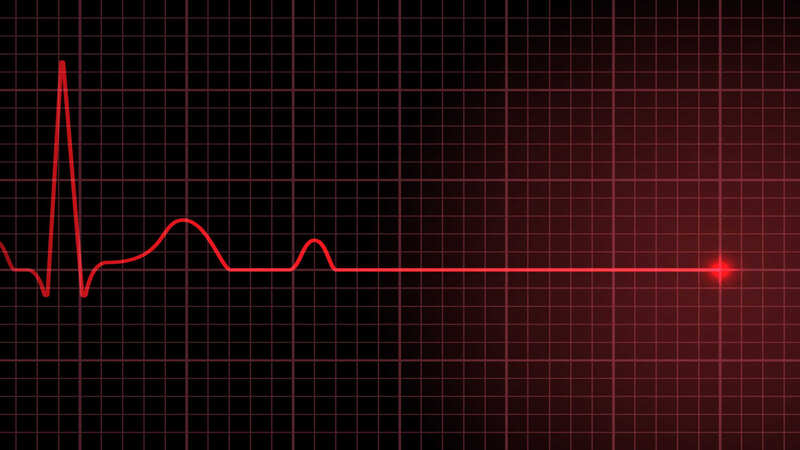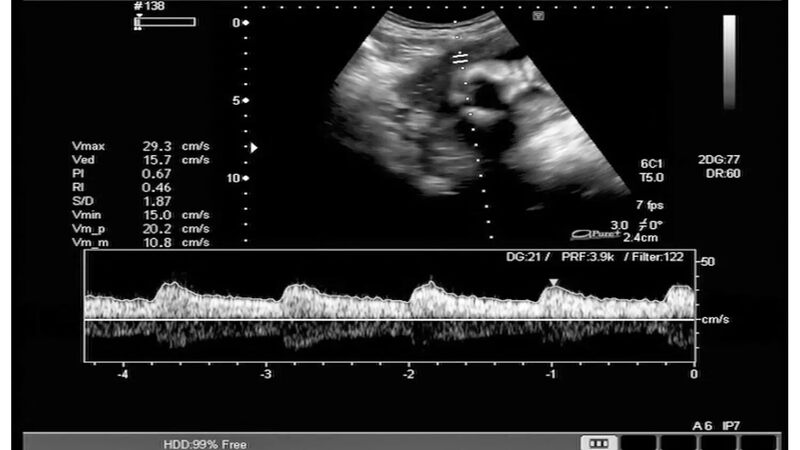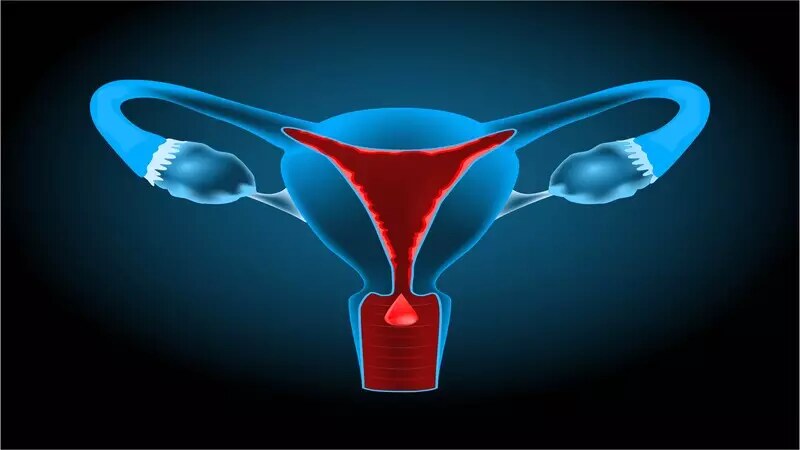
Pregnancy is an exciting journey. It is often marked by milestones like the first ultrasound, where parents get to hear their baby’s heartbeat. But for some, this joy is followed by heartache when, during subsequent ultrasounds, the heartbeat is no longer present. Why Does Fetal Heartbeat Stop Suddenly? In many cases, the cause remains unknown unless it happens repeatedly. If you face this loss, know that emotional and physical healing takes time.
What can cause fetal heartbeat to stop? Fetal heartbeat stopping during early pregnancy can be devastating. Understanding the reasons behind it may offer some comfort. This article covers some points that could help understand why fetal heartbeat stops suddenly.
Can a Fetal Heartbeat Just Stop ?
At the end of the 4th week of gestation, the heartbeats of the embryo begin. However, it may not be detectable by ultrasound until about 6 to 7 weeks. This early heartbeat is often very fast, ranging from 110 to 160 beats per minute.(1). Yes, a fetal heartbeat can stop due to various reasons, which may result in pregnancy loss.
Is Baby Heartbeat Stopped at 11 Weeks and IUFD Same?
No, a fetal heartbeat stopping at 11 weeks and intrauterine fetal demise (IUFD) are not the same.
Intrauterine fetal demise (IUFD) refers to the death of a fetus after 20 weeks of gestation but before or during labor. (2). If a fetal heartbeat stops at 11 weeks, it is typically referred to as a miscarriage (or early pregnancy loss), not IUFD. The key difference is the timing: IUFD occurs later in pregnancy (after 20 weeks), whereas a fetal loss at 11 weeks happens during the first trimester.
Is There a Link Between Fetal Heart Rate and Miscarriage?

Early in pregnancy, fetal heart rate is an important indicator of fetal viability. Studies have shown that a fetal heart rate below 90 beats per minute (bpm) at 6-7 weeks of gestation is associated with an increased risk of miscarriage. (3). This slower heart rate may indicate poor fetal development or issues with the placenta, which are common causes of pregnancy loss.
However, many factors can influence fetal heart rate, and a normal heart rate doesn’t guarantee a healthy pregnancy. It is essential to understand that fetal heart rate is not the sole indicator of miscarriage risk; other factors, including ultrasound findings and maternal health, also significantly contribute. Always consult a healthcare provider for an accurate assessment.
What Is Miscarriage?

A miscarriage is the natural loss of a pregnancy before the 20th week. It occurs when the fetus is unable to develop properly.
It typically occurs due to chromosomal abnormalities in the fetus, which are the leading cause of early pregnancy loss. (4). Other factors can include hormonal imbalances, uterine abnormalities, infections, immune system disorders, or maternal health conditions such as diabetes or thyroid disorders.
The process of miscarriage is often marked by symptoms such as vaginal bleeding, abdominal cramping, and the expulsion of fetal tissue. In most cases, a miscarriage is an isolated event, and many women who experience it go on to have successful pregnancies in the future.
When Does Pregnancy Loss Happen Without Bleeding?
Pregnancy loss may not always cause bleeding. Pregnancy loss can happen without bleeding in what’s known as a missed or silent miscarriage. (5). This happens when the embryo or fetus stops developing, but the body does not immediately recognize the loss. As a result, there may be no noticeable symptoms like bleeding or cramping for days or even weeks.
Signs of a missed miscarriage include suddenly losing pregnancy symptoms like nausea or breast tenderness. An ultrasound may also show that there is no fetal heartbeat. To diagnose a missed miscarriage, a doctor typically conducts an ultrasound and checks hormone levels.
What No Fetal Heartbeat on an Early Ultrasound Means?

The absence of a heartbeat early is a concerning sign. Fetus’s heart begins thumping at around the fifth-week stretch of pregnancy. Eventhough doctors start searching for the fetus’s pulse during the first trimester, it might be nearer to the end of the first trimester before they can find one with a Doppler.
Still, it is possible to miss the heat beat of the fetus because of things like the child’s position or the arrangement of the placenta. Thus, during the early weeks pregnancy, specialists may not stress over not hearing a heartbeat. Instead they will repeat the examination after a while.
They will generally have the mother return and attempt again at another arrangement. If no stable is heard once more, an ultrasound might be planned to check whether there is an explanation.
Not detecting a fetal heartbeat does not always indicate a problem, especially in early pregnancy. In the first few weeks, it may simply be too early for the heartbeat to be detected due to the baby’s development. The technician may fail to notice the fetal heartbeat due to the limitations of the ultrasound technology. Factors like incorrect dating of the pregnancy, maternal anatomy, or the position of the fetus can also affect detection. However, in later stages, the absence of a heartbeat could signal a complication and should be evaluated promptly by a healthcare provider.?
Can a Fetal Heartbeat Stop and Then Start Again?
In most cases, if a fetal heartbeat stops, it does not start again. Once the heartbeat ceases, it typically indicates a miscarriage or intrauterine fetal demise (IUFD), depending on the gestational age. However, there are rare instances where a heartbeat may appear to stop temporarily due to factors like maternal position or equipment malfunction, and then resume upon further examination.
5 Reasons For Fetal Heartbeat Stopping of The Baby

All the time, the purpose of this unsuccessful labor is never discovered except if there is a repeat of similar occurrences. The most common reasons are:
1. Chromosomal Abnormality In the Fetus
Fetal chromosome abnormalities account for about 50% of first-trimester pregnancy losses. (6). Most chromosomal abnormalities arise from either an abnormal egg, irregular sperm, an unusual combination of the two, or issues that occur during the zygote’s division process. When there is a chromosomal issue or a problem with fetal development, the body typically will terminate the pregnancy.
2. Blood Clot Issue
Blood clot issues in the mother, such as thrombophilia can potentially disrupt blood flow to the fetus, leading to a sudden stop in the fetal heartbeat. (7). When blood clots form in the placenta or umbilical cord, it can block oxygen and nutrient supply to the baby, causing fetal distress or demise. Conditions like deep vein thrombosis (DVT) or antiphospholipid syndrome (APS) increase the risk of clotting issues, making it important for pregnant women with these conditions to receive proper medical care and monitoring.
3. Twisting of Cord
Twisting of the umbilical cord is unlikely to cause a fetal heartbeat to stop in the first trimester, as the fetus and cord are still small and have ample space within the uterus. However, severe cord abnormalities, such as true knots or structural defects, might contribute to complications, though this is exceedingly rare in the first trimester. as the pregnancy progresses, twisting of umbilical cord is one of the culprit that cause fetal heart to stop beating.
4. Progesterone Hormone Inadequacy
Progesterone is essential for sustaining a healthy pregnancy. This hormone plays a critical role in maintaining the uterine lining and supporting the placenta, which is vital for the fetus’s survival. Low levels of progesterone during the early stages can hinder the fetus’s growth and development (8), potentially causing the fetal heart to stop beating.
5. Infections of the Mother
Maternal infections can sometimes lead to a sudden stop in the fetal heartbeat, (9),especially if the infection affects the uterus, placenta, or overall maternal health. Conditions such as chorioamnionitis (infection of the membranes), toxoplasmosis, cytomegalovirus (CMV), rubella, or listeriosis can disrupt the baby’s development by causing inflammation, impairing oxygen and nutrient delivery, or directly harming fetal tissues.
What Can Be Done If Fetal Heartbeat Stops Suddenly For The Baby?

If a fetal heartbeat stops suddenly, it indicates a pregnancy loss, and immediate medical attention is required to assess the situation and determine the appropriate course of action. The healthcare provider will typically confirm the absence of a heartbeat through ultrasound and may conduct further tests to understand the cause of the loss.
Options for management include:
- Expectant management: Waiting for the body to naturally expel the pregnancy, which can take time and may occur with minimal intervention.
- Medical management: Using medications to help expel the fetal tissue and facilitate the process of miscarriage.
- Surgical intervention: Procedures like dilation and curettage (D&C) or dilation and evacuation (D&E) may be recommended to remove the fetal tissue from the uterus.
- Fetus removed through ERPC (Evacuation of Retained Products of Conception): This method is the expulsion of the child/fetus from the uterus through a suction system and enlargement of the cervix.
The healthcare provider will discuss these options with the mother, considering her health and emotional needs. Counseling and support are also important, as the emotional impact of such a loss can be significant
What Happens if a Dead Fetus Stays in the Womb?
If a dead fetus stays in the womb for too long, it can lead to serious health risks for the mother, such as infection or blood clotting issues. (10). The body may eventually expel the fetus, but if not, medical intervention, like medication or a surgical procedure, is often needed to remove the fetal tissue. This is important to prevent complications and protect the mother’s health.
Experiencing a baby’s heartbeat stop in the initial weeks of pregnancy is incredibly difficult, but understanding the reasons behind it can bring some peace. Often, nature has its way of handling situations when something is wrong with the unborn child. You can complete your next pregnancy successfully with proper medical guidance and a positive mindset. It’s important to be your advocate, ask questions, and seek clear answers from healthcare professionals. Miscarriages are common for doctors, but deeply personal for you. Take the time to grieve in your way and honor the loss, alongside your partner.
FAQ’s
1. Can the Mother’s Stress Levels Impact Fetal Heartbeat?
Yes, new studies show that an increase in stress hormones in the mother’s body can affect fetal heart rate.
2. I Didn’t Hear my Baby’s Heartbeat in My Scan. Can it be a Mistake?
Yes, the doctor could have checked the wrong sport or the machine might not have been sensitive enough. The baby’s position also matters. Always check again before you conclude it s a miscarriage.
3. How Long Can a Fetus Stay Without a Heartbeat?
Once the doctor concludes there is no heartbeat and the pregnancy has to be terminated; the fetus should not stay in for more than 4 weeks.
4. Can a Dead Fetus Infect the Mother?
Yes. It can cause severe infection in the womb or cause blood loss in the mother. The dead fetus will start to rot when there is no blood flow or oxygen. The body sometimes passes out the dead fetus like a period.
5. Would You Still Miscarry If Baby’s Heartbeat Stopped?
There is a possibility of miscarriage if your baby’s heartbeat stops after 12 weeks of gestation. However, if you have not heard your baby’s heartbeat before 6 weeks, that doesn’t always mean a miscarriage. Your doctors may want you to wait for another two weeks to find the heartbeat and see if the pregnancy is viable. In some cases, if there was a heartbeat and it suddenly stopped, it could mean you have had a miscarriage.
6. Is No Heartbeat At 8 Weeks Normal?
Usually, the baby’s heart starts beating during week 6 and you can hear it any time between weeks 7-10. In some cases, if you are not really 8 weeks pregnant because of your cycle length, there is a possibility of not being able to catch your baby’s heartbeat. However, it is rare and your doctor may suggest a transvaginal ultrasound to see if you had a miscarriage.
7. Can Babies Grow Without Heartbeat?
Babies will stop growing if there is no heartbeat. However, your pregnancy signs may continue without any indications of miscarriage for a few more days.
Reference
- Valenti O, Di Prima FA, Renda E, Faraci M, Hyseni E, De Domenico R, Monte S, Giorgio E. Fetal cardiac function during the first trimester of pregnancy. J Prenat Med. 2011 Jul;5(3):59-62. – https://pmc.ncbi.nlm.nih.gov/articles/PMC3279166/
- Mark M. Maslovich; Lori M. Burke.William Sparrow Hospital, Sparrow Hospital – Michigan State University College of Human Medicine – https://www.ncbi.nlm.nih.gov/books/NBK557533/
- Doubilet PM, Benson CB. Embryonic heart rate in the early first trimester: what rate is normal? J Ultrasound Med. 1995 Jun;14(6):431-4. – https://pubmed.ncbi.nlm.nih.gov/7658510/
- Vlachadis N, Papadopoulou T, Vrachnis D, Manolakos E, Loukas N, Christopoulos P, Pappa K, Vrachnis N. Incidence and Types of Chromosomal Abnormalities in First Trimester Spontaneous Miscarriages: a Greek Single-Center Prospective Study. Maedica (Bucur). 2023 Mar;18(1):35-41 – https://pmc.ncbi.nlm.nih.gov/articles/PMC10231156/
- Miscarriage Association, Missed miscarriage – https://www.miscarriageassociation.org.uk/information/miscarriage/missed-miscarriage/
- Goddijn M, Leschot NJ. Genetic aspects of miscarriage. Baillieres Best Pract Res Clin Obstet Gynaecol. 2000 Oct;14(5):855-65 – https://pubmed.ncbi.nlm.nih.gov/11023805/
- Abu-Heija A. Thrombophilia and Recurrent Pregnancy Loss: Is heparin still the drug of choice? Sultan Qaboos Univ Med J. 2014 Feb;14(1):e26-36. – https://pmc.ncbi.nlm.nih.gov/articles/PMC3916273/
- Bataa M, Abdelmessih E, Hanna F. Exploring Progesterone Deficiency in First-Trimester Miscarriage and the Impact of Hormone Therapy on Foetal Development: A Scoping Review. Children (Basel). 2024 Apr 2;11(4):422. – https://pmc.ncbi.nlm.nih.gov/articles/PMC11049201/
- Goldenberg RL, Culhane JF, Johnson DC. Maternal infection and adverse fetal and neonatal outcomes. Clin Perinatol. 2005 Sep;32(3):523-59. – https://pmc.ncbi.nlm.nih.gov/articles/PMC7119141/
- Intrauterine fetal demise, medically reviewed by Katie Lavender, RN Registered Nurse – https://www.cerebralpalsyguide.com/contributors/katie-lavender-rn/

3 Comments
How can you find the reasons… are there some tests? By which u can come to know the reason
”The excitement and happiness of pregnancy gives way to sheer disappointment …” Women who have experienced this do not feel ‘disappointment” they feel destroyed. They feel grief, they feel like their world has been torn apart, they feel distraught. Disappointment is not the word to use here. At all.
if the heart beat will be stopped. what we can do..?